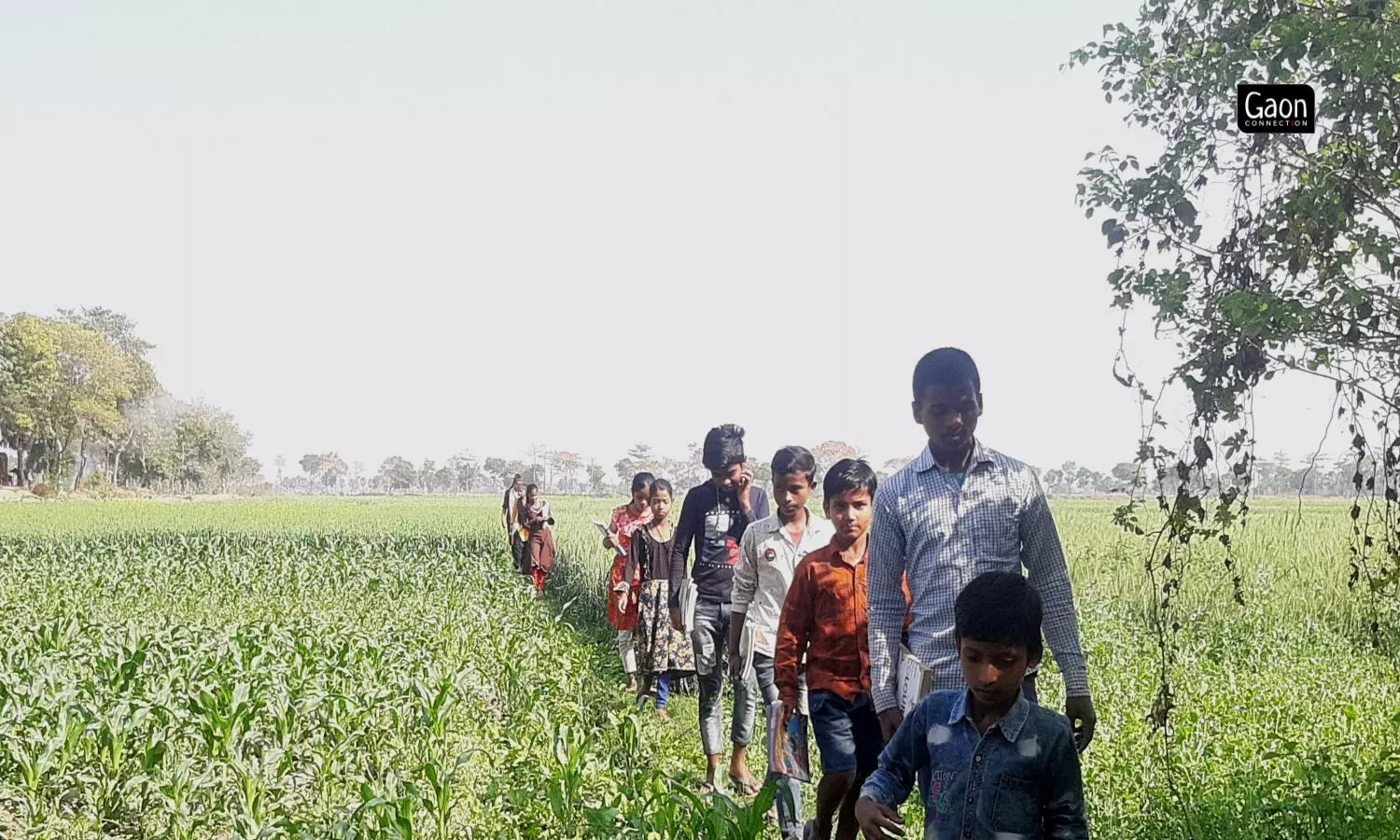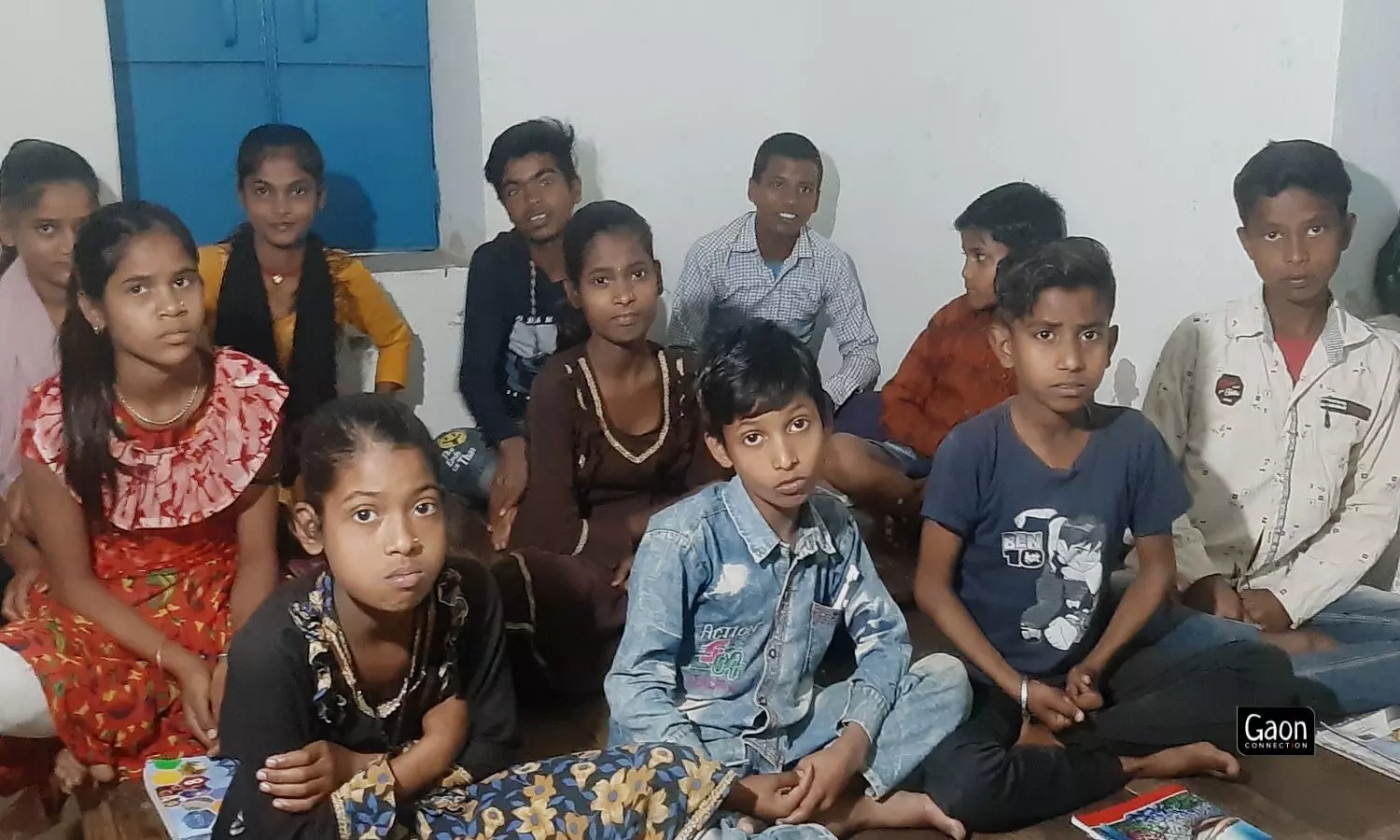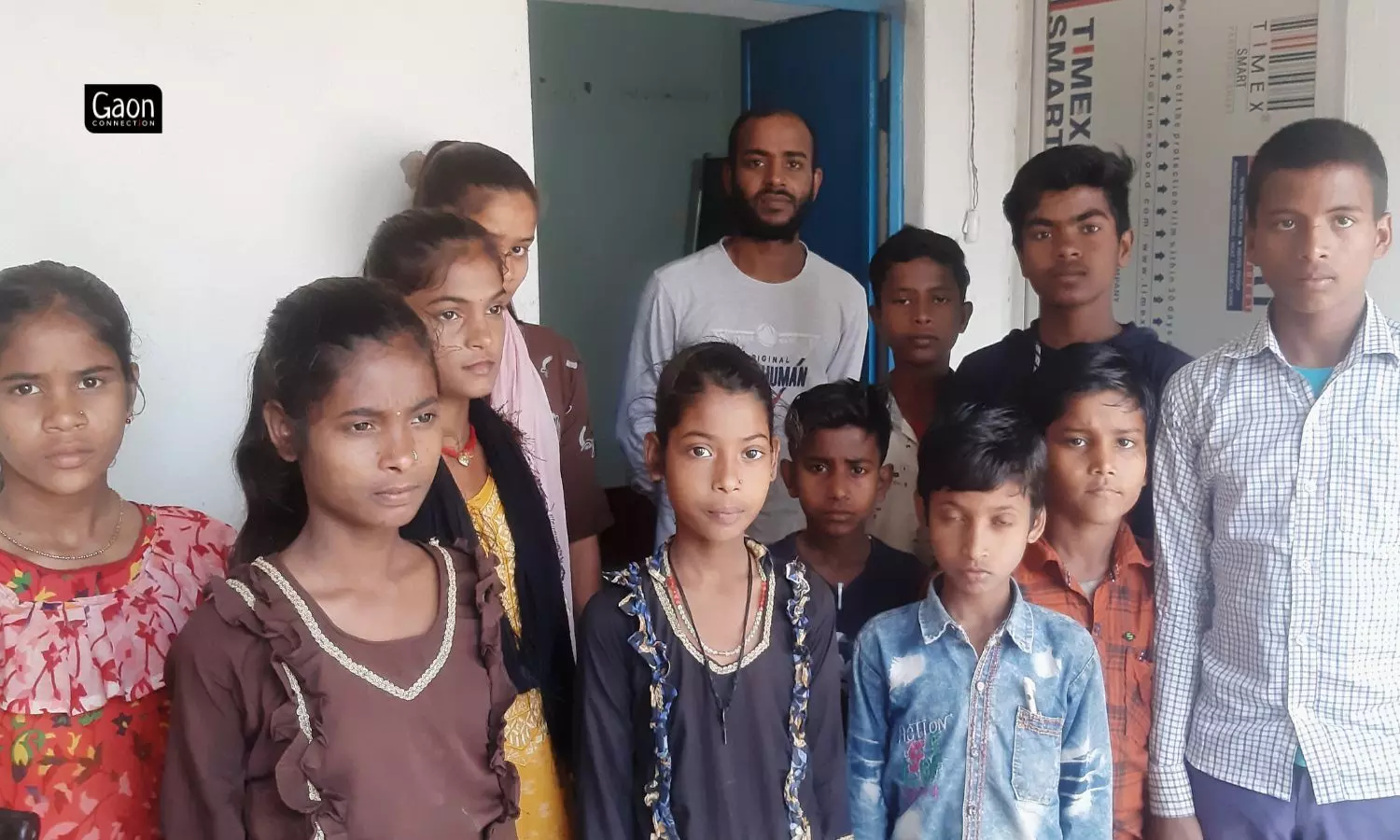Hussainpur (Nalanda), Bihar
Inspired by the excellent system of education the Nalanda University provided in ancient India, Monu Kumar, an engineer, left his job and started a gurukul (education system in ancient India) in Hussainpur village in Nalanda district of Bihar. Since 2021, he has been providing free education to students who come from villages in Peshaur panchayat of Rahui block in Nalanda.
“We teach them science, mathematics, philosophy, meta physics, history, sanskrit grammar, hindi, etc. They learn about Ramanujam, Buddha, Vivekanand, Aryabhatta and other personalities, and subjects the children’s school syllabus do not touch upon,” Monu Kumar told Gaon Connection.

Inspired by the excellent system of education the Nalanda University provided in ancient India, Monu Kumar, an engineer, left his job and started a gurukul.
According to him, the students’ intellect would be enhanced if they learnt about the ancient texts such as the Vedanta, Bhagwat Gita, Upanishads, etc. “We teach them A for ‘Arjun’ or ‘Abul Kalam’, and not A for ‘Apple’,” he smiled and added that he wanted to revive the old academic system of the ancient Nalanda University.
Nalanda University, established during the Gupta Dynasty in Magadh (now Patna) in the fifth century, was covered in glory. The university had nearly 2,000 teachers and 10,000 students studying Sanskrit, grammar, medicine, mathematics and other subjects. Invasion by Mohammad Bakhtiyar Khilji in the 13th century destroyed it and it was partially restored and existed till 1400. Today it is a UNESCO (United Nations Educational, Scientific and Cultural Organisation) World Heritage Site.
Also Read: “What have I achieved?” — a rural primary school teacher asks herself and then finds the answer
Separate Curriculum
Monu Kumar has drafted a separate curriculum based on the correlation of Vedanta with mathematics, history, and Indian culture and tradition. Students who can read and write can join the gurukul.

Monu Kumar said that his mission was to let students gain knowledge instead of reading books to pass exams.
At present, there are 11 students of which five are girls. Since 2021, the gurukul has imparted free education to over 100 students. The students, who are enrolled at Hussainpur Middle School, attend the classes at gurukul for three to four hours every day.
“Despite the children having completed after high school, the academic standards of many children in the villages are very poor. They are ignorant about the basics of mathematics, science, Indian culture, etc., and know nothing about Vedanta, Bhagwat Gita, Bible, etc. I try to improve their intellect, wisdom, and thinking habits through a combination of the old academic system and advanced digital technology,” Monu Kumar said.
Also Read: Kanpur: An Affordable School for the Children of Factory Workers and Labourers
Advanced Learning
Students find the classes at the gurukul engaging and interesting. “I now know so much about the rich and varied culture of our land that I was not taught about at school,” Puja Kumari, a class seven student who attends the gurukul, told Gaon Connection.
Another student Shanti Kumari said she wanted to change the wrong perception of Bihari culture. “We girls at the gurukul will make our family members and fellow residents aware about historic culture and achievements. We want to change the general mindset about Bihari tradition [as being inferior],” she said.

Despite the children having completed after high school, the academic standards of many children in the villages are very poor.
Uday Kumar, a class eight student who comes to the gurukul said he knew so much more now about history and general knowledge.
Monu Kumar said that his mission was to let students gain knowledge instead of reading books to pass exams. “History is being taught not just to inform students about their past but they are being told about its importance in our life. They are being motivated to create history as it happened earlier,” the teacher added.

The teacher wants to bring about an academic revolution through the gurukul.
Monu Kumar said his dream was to reestablish the excellence of teaching centres of ancient India such as Nalanda University, Taxila University, and Vikramshila University.
“India was a centre of academic excellence in ancient times and by reviving similar traditions, it is possible to once again raise a Buddha or an Aryabhatta,” the teacher said.
The teacher
Monu Kumar completed B Tech from Kurukshetra University in Haryana in 2017. Since he had a passion to revive the old academic system he worked as a senior lecturer in Swami Vivekanand Institute of Engineering and Technology in 2018-19 at the Punjab Technical University at Chandigarh in Punjab. In 2020, he returned to his native in Bihar.
He began the gurukul and in order to earn a living and sustain the gurukul, he began coaching classes for students of high school, those who were IIT aspirants, those who wanted to appear for the Joint Entrance Examination (JEE), and so on. He charged them a nominal fee.

Students find the classes at the gurukul engaging and interesting.
“This is just the beginning of my journey. There are challenges, but I will expand the gurukul, and continue teaching the way they did at Nalanda University. I will register my gurukul with the state government and systemic study will be imparted to students,” Monu Kumar said.
“I want to bring about an academic revolution through the gurukul,” he concluded.


















